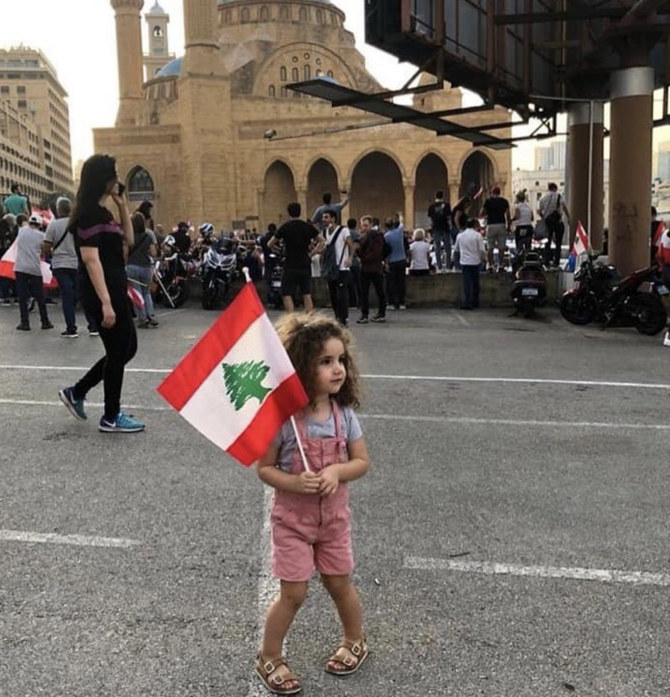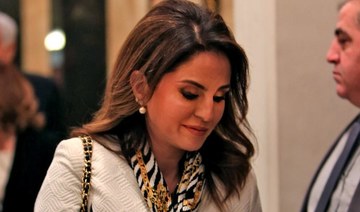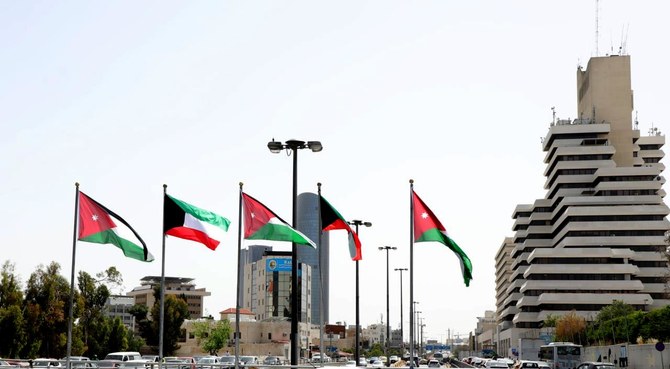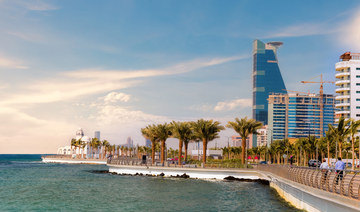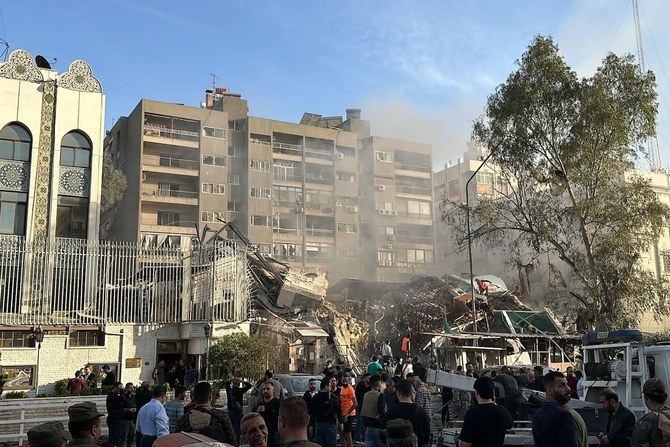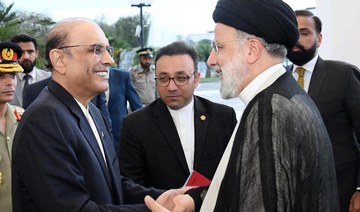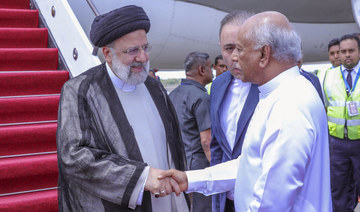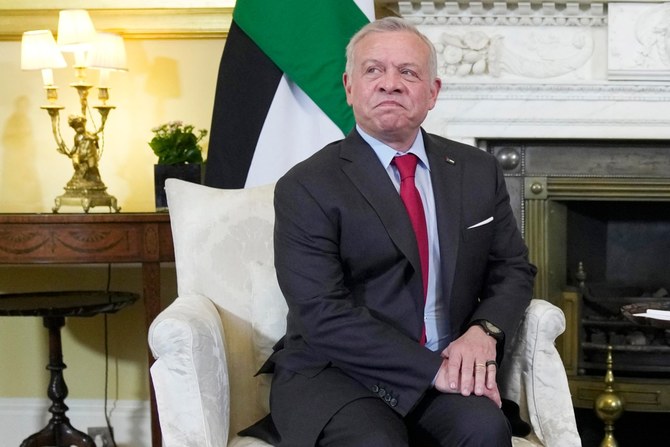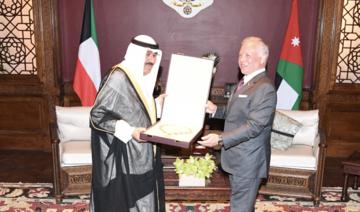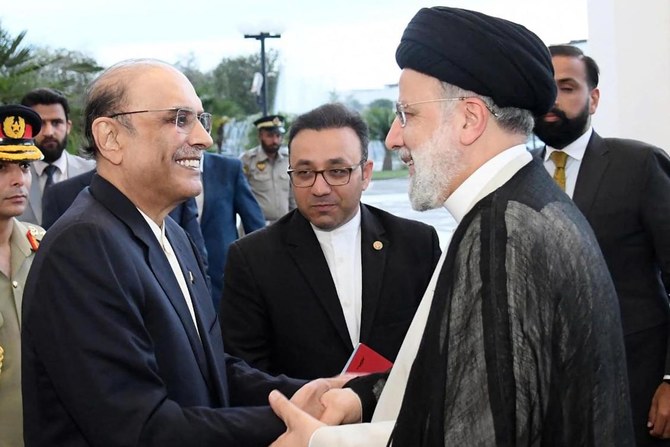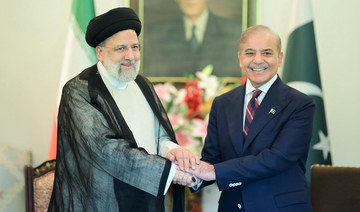LONDON: In an ideal world, Alexandra Najjar should have been able to enjoy the rest of a pleasant Mediterranean summer with her family. Once the coronavirus outbreak in Lebanon had been tamed, she should have been able to experience her first day of school.
She would have made many new friends and begun to absorb all the knowledge that a three-year-old is capable of when they first enter kindergarten.
And as the days turned into weeks, which turned into months, which turned into years, Alexandra’s parents would have watched her grow into a young girl, enjoy life, dream big and perhaps achieve greatness in some field.
Alas, in the harsh real world of crisis-wracked Lebanon, the dreams of Alexandra’s parents will remain just that.
Some 2,750 tons of ammonium nitrate haphazardly stored in a warehouse at the Port of Beirut exploded as Alexandra was playing with a friend on the evening of August 4, leaving her severely injured.
Shockwaves from that blast devastated Beirut, leaving its streets blanketed in debris and shards of glass — and many of its residents caked in grey dust and crimson-red blood.
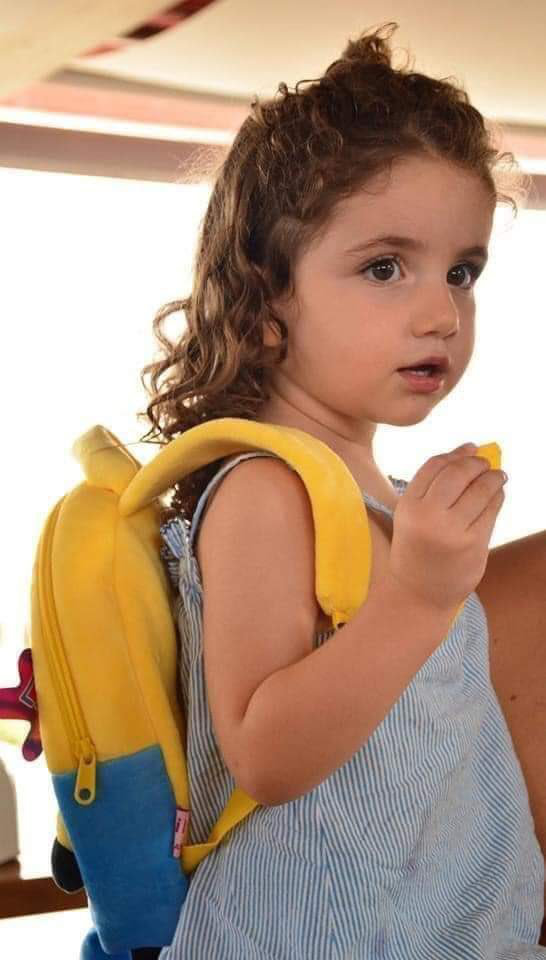
Photos and videos of Alexandra were shared widely on social media and tributes poured in online. (Reuters )
Three days later, after being in a critical condition in a hospital and suffering internal bleeding in her brain, Alexandra succumbed to her wounds.
“You killed us in our own home, in a place where I thought I could leave my family, protect my family ... where if crimes are happening and we don’t have anything in this country, then at least we have our home where we can be safe,” said Paul Najjar, Alexandra’s grief-stricken father, in a TV interview on Saturday evening, assailing Lebanon’s leaders.
“What you did is a crime at the cost of our family that is so very united and this for me, at the most, is a crime at the cost of love because if there’s anything I should believe in, it’s this — which was the foundation of our family, it still is and will continue to be so.”
As the pain of the Najjar family’s loss sank in, photos and videos of Alexandra — or “Lexou,” the name by which parents called her — began to be shared widely via social media platforms and WhatsApp groups, both in Lebanon and outside it.
Tributes poured in online, testifying to the despair and anguish Lebanese across the world felt in the aftermath of the explosions. Alexandra’s untimely death had put a human face on Beirut’s horrible tragedy.
In one of the pictures, Alexandra is seen sitting atop her father’s shoulders as he took part in a march during last year’s October 17 “revolution,” demanding an end to Lebanon’s twin bane of corruption and sectarianism.
The protesters were calling for a better world for all Lebanese — and a brighter future for Alexandra.
The captions accompanying the photos point to the impact of the Najjar family’s tragedy on the Lebanese people and diaspora.
“This is a photo of Alexandra protesting for a better Lebanon to remove the corrupt government and no one listened and now she’s in heaven,” former Miss USA Rima Fakih wrote below a post on Instagram.
Another caption says: “Alexandra, you are in each of our hearts and prayers today and always. Your death will not be in vain ... we will make sure of it!”
Alexandra was one of the youngest victims of the Beirut explosions, whose human cost so far includes 150 deaths, nearly 6,000 injured and another 300,000 homeless.
After citizens and residents independently organized and cleaned up the streets and homes of the areas most affected by the blast’s impact, shock turned to anger.
“My message to the Lebanese is a message of unity,” Paul Najjar said in the interview. “They killed us — they didn’t kill Christians or Muslims or politically-affiliated or not politically-affiliated. There is none of this anymore — a message to all the people who are still following these people.
“Please, enough. We need to stand together. We need to stand united so that we can make the change, so we can revolt for the sake of Alexandra and every child and every family that wants to live in this country like we had hope for.”
Paul Najjar said he and his wife returned to Lebanon and set up a company in an effort to help the country.
“We had hope that we would help the country. We also hoped that Alixou would grow up in Lebanon,” he said.
On Saturday, thousands of Lebanese made their way to Beirut’s Martyrs’ Square demanding accountability for the explosions, and the resignation of all government officials. Many of them carried nooses, which they used for symbolic hangings of Lebanon’s principal political actors, including Hezbollah leader Hassan Nasrallah, Future Movement leader and former PM Saad Hariri, and Lebanese President Michel Aoun among many others.
The government responded by deploying riot police and the army, who used rubber bullets and tear gas to subdue similar protests in front of the parliament in Riad Al-Solh Square and the nearby Beirut Souks.
Lebanese Red Cross and the Islamic Emergency and Relief Corps figures showed that the clashes left 728 more Lebanese injured, of whom 153 were taken to hospital and 575 treated on site.
“For your information, rubber bullets could kill and cause permanent damage. If necessary, it should be aimed at legs only. Yesterday, and in one hospital, there were seven open surgical eyes and a ruptured abdominal spleen,” Mohammad Jawad Khalifeh, a former Minister of Health, said on Twitter.
Meanwhile, little light has been shed by the government on why such a huge quantity of a highly combustible chemical was stored next to the Beirut Port Silos building after being confiscated from a Russian-leased ship six years ago.
“The incident might be a result of negligence or external intervention through a missile or a bomb,” President Michel Aoun said on Friday.
Whatever the truth, UNICEF has warned that almost 80,000 of those displaced by the “incident” are children whose families are in desperate need of support.
Opinion
This section contains relevant reference points, placed in (Opinion field)
One children’s hospital in the Karantina area, which had a specialized unit treating critical newborns, was destroyed.
Across Beirut, at least 12 primary health care facilities, maternal, immunization and newborn centers have been damaged, disrupting services for nearly 120,000 people.
Against this grim backdrop, Paul Najjar and his wife are hoping that Alexandra’s death will not be in vain but will have a positive impact when the nation rebuilds itself.
_____________
Twitter: @Tarek_AliAhmad









